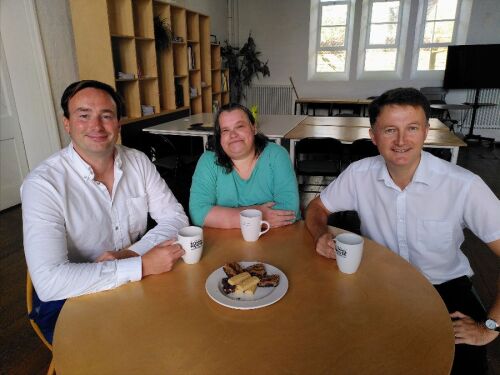Poverty Truth Commissions (PTC) are inviting MPs to sit down over a cup of tea for a meaningful conversation about the struggle of poverty and our shared hopes for ending it.
These conversations are part of an initiative we call Politics Alongside, which explores how Commissioners and parliamentarians can build deeper relationships and work together as equals to shape more compassionate, informed policies. Through these conversations, MPs and Peers have the opportunity to learn about the Poverty Truth approach.
At its core, Poverty Truth is about fostering relationships between people who know the struggle against poverty firsthand and those with institutional power to create change. It is a method rooted in building human-to-human trust and collaboration, working together to find solutions that make a real difference in people’s lives and communities.
While Poverty Truth Commissions typically operate at the local level – working with business leaders, civil society, public sector figures and politicians – we have a hunch that this approach and culture of collaboration developed locally can also be applied regionally and nationally. Politicians today, despite best efforts, are facing a crisis of public trust. National politics too often feels breathless and divisive. We believe the Poverty Truth approach can play a part in changing this by restoring trust through prioritising human connections.
Several PTCs have already met their local MPs for a cup of tea.
Debbie James (Community Commissioner) and Alistair Doxat-Purser (Civic/Business Commissioner) of Bournemouth, Christchurch, and Poole PTC met with newly elected MP Tom Hayes for a chat over tea and biscuits in Boscombe. It was an informal but important moment to share experiences and lay the groundwork for a relationship aimed at improving the political system for those living in poverty.

We encourage you to get involved. Invite your MP for a cup of tea to introduce them to the Poverty Truth way. Now is the perfect time to shift the conversation about poverty at both local and national levels.
The Poverty Truth Network (PTN) can provide a template letter and facilitation guide to help you set up the conversation. Ask your facilitator or contact us for more information.
